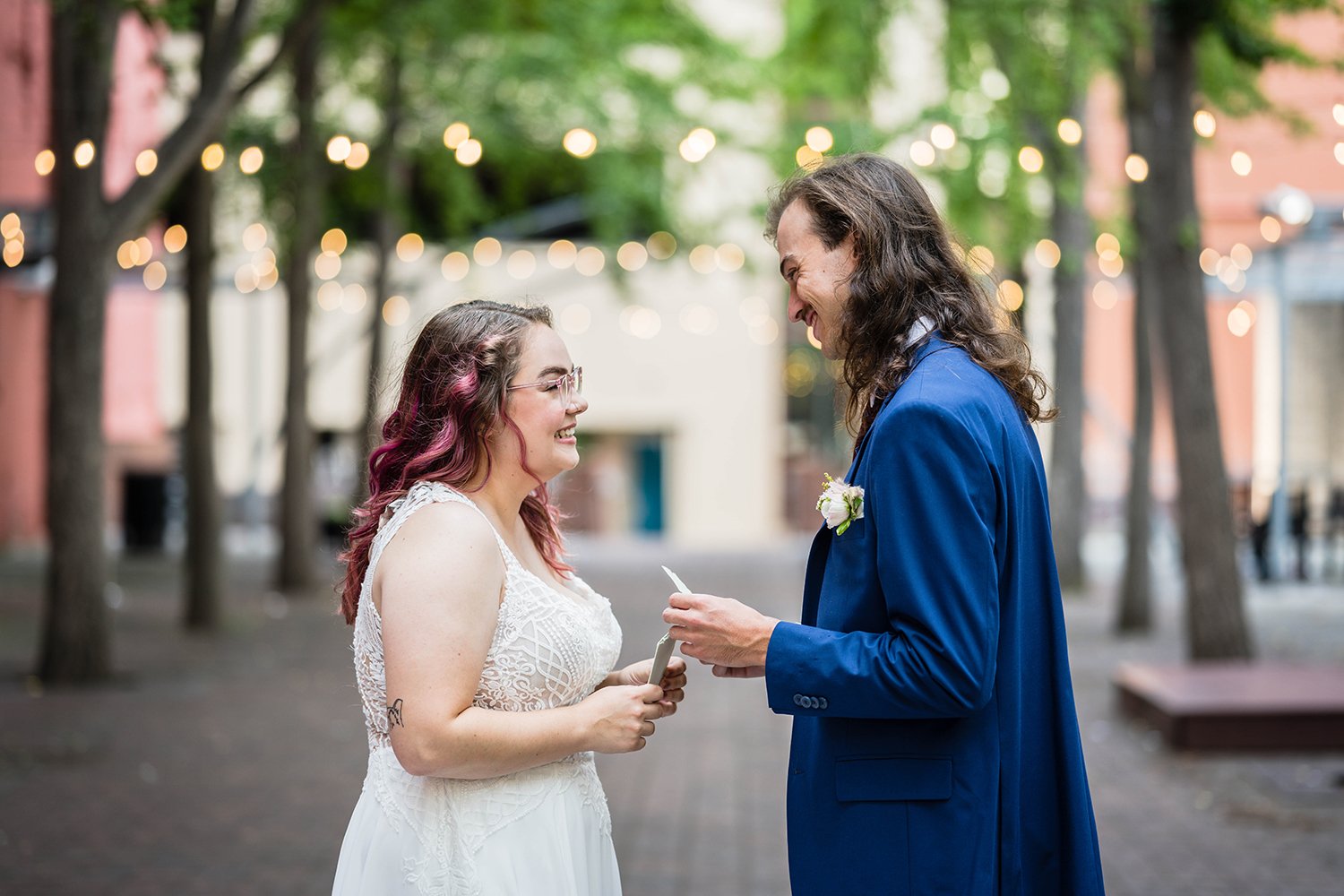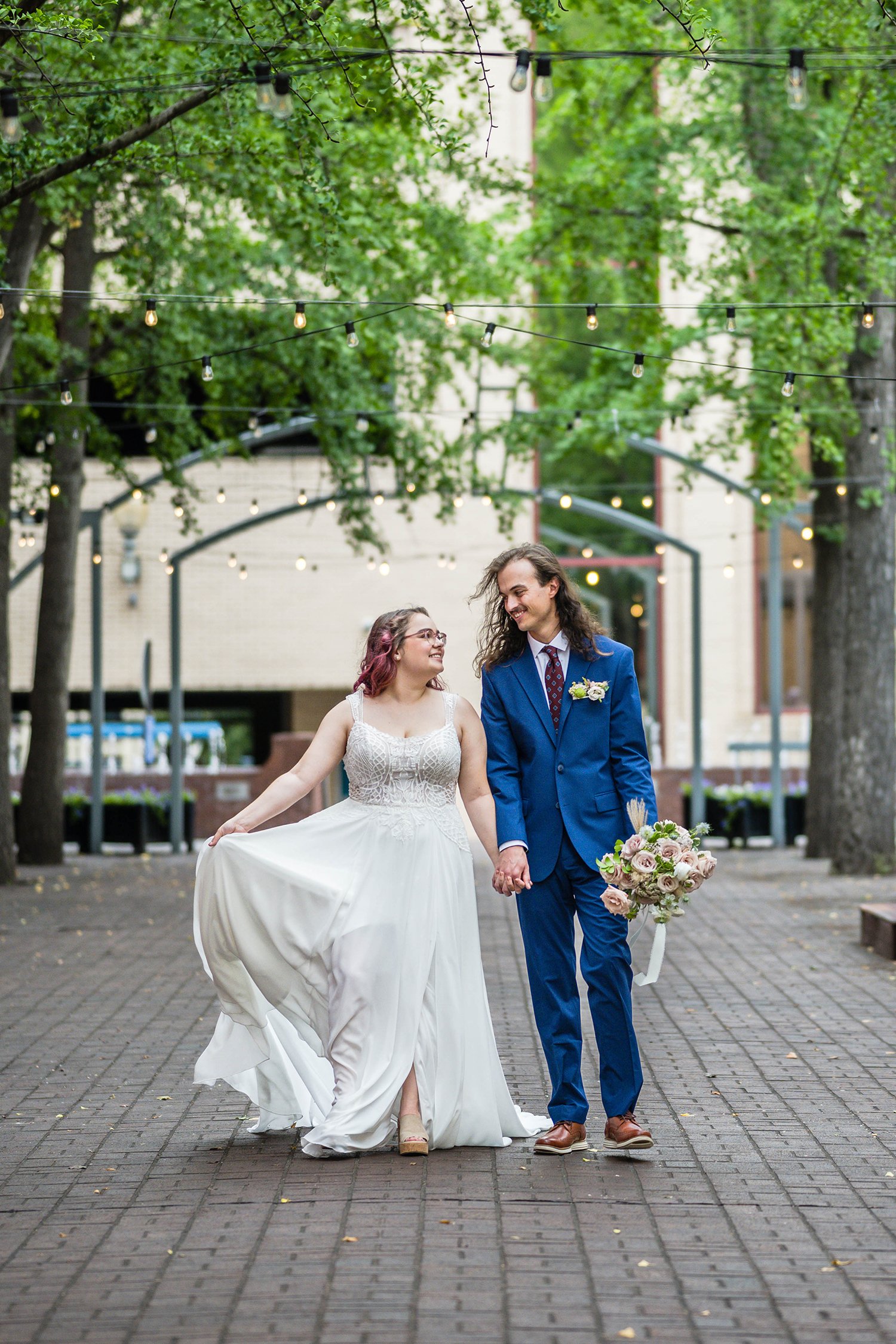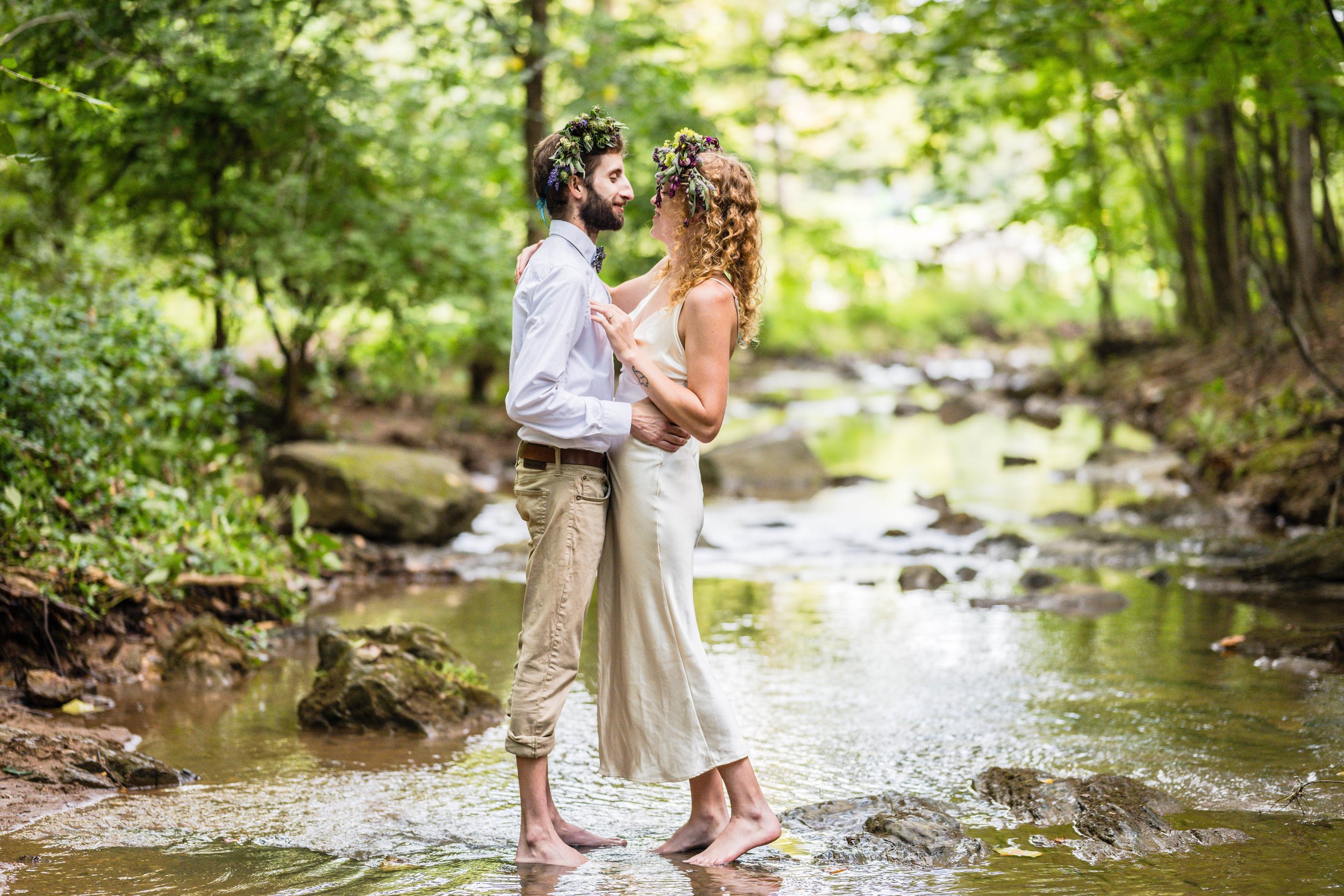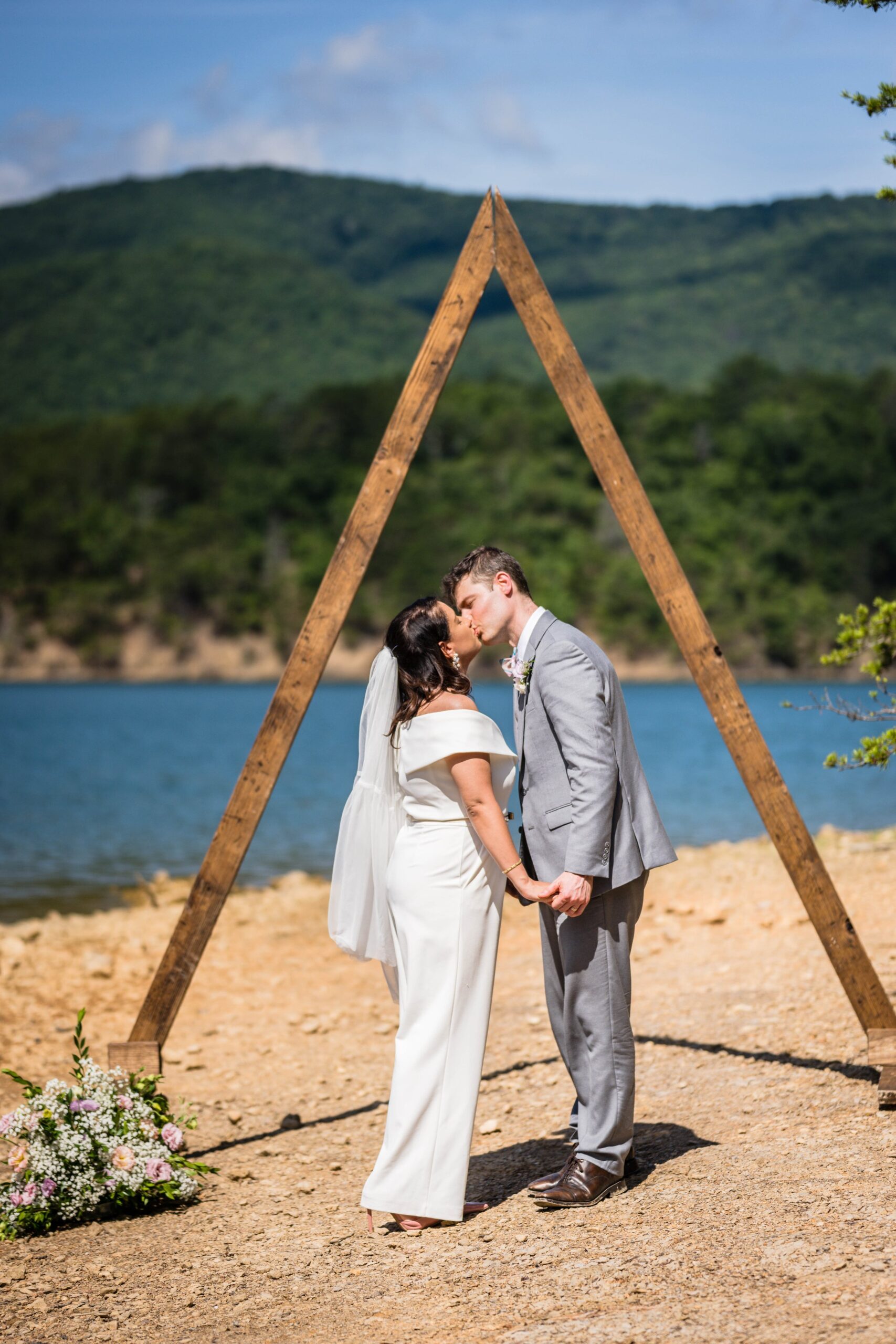Here’s how to legally get married in Virginia
To begin, I want to clarify that it’s completely acceptable if you are already lawfully wedded in another state or country, or if you intend to have a legal marriage elsewhere and simply desire a symbolic elopement in Virginia. However, if you wish to ensure the legal validity of your ceremony, here’s how to get married in Virginia, legally.
Get a marriage license
The first step to getting married legally in Virginia is to acquire a marriage license from any of the Clerk of the Circuit Court offices. Numerous offices are available throughout the state, so you can conveniently locate the one nearest to your place of residence or intended wedding venue.
Virginia doesn’t impose any residency requirements for eloping, meaning you’re not obligated to be a resident of Virginia in order to get married within the state. When applying for your marriage license, be sure to bring a recent and valid form of identification, such as a passport, driver’s license, or state ID card. Additionally, you’ll be asked to provide the full names of both your parents as stated on their birth certificates.
Please note that there is a $30.00 application fee that needs to be paid as well. Each Circuit Court office may have a different way of accepting payment for the application fee but they typically will take cash, cashier’s check, or accept a debit or credit card. If you pay with a debit or credit card, they usually charge a convenience fee which can be anywhere between $2-$5. Please note that a cashier’s check is different from a personal check; here is an in-depth article that outlines the differences and explains how you can get your hands on a cashier’s check.
Once the Circuit Court office has the license, you’re able to order certified copies of your marriage license for $2.50 each (this may vary by office) and you can use these copies for DMV, Social Security, Immigration, shared benefits and any other purpose that requires proof of your marriage. If you’re looking into getting copies, you’ll want to search for a request form on the Circuit Court office’s website and, if you can’t find it, give them a call.
Both partners must appear together in person at a Virginia Circuit Court Clerk’s Office to obtain a marriage license. Some offices allow you to complete the application form ahead of time, which can help streamline the process. You can usually find the correct form by visiting the website of the Circuit Court nearest you. However, not all offices provide their forms online—so if you don’t see one listed, you’ll simply need to complete it in person when you arrive.
Find an officiant to perform your wedding
Once you have completed the marriage license application, you’re all good to go! After your application is approved, there’s no waiting period to continue with the marriage ceremony, and the license remains valid for a duration of 60 days. The marriage must be performed within 60 days or the license becomes void and unused licenses must be returned to the Circuit Court.
While a Virginia wedding does not require witnesses, it’s important to note that self-officiation is not permitted. This means that you’ll need someone to serve as an officiant, as the state generally does not offer Justice of the Peace or courthouse weddings. The officiant must be registered with the state to legally perform marriages. Currently, Virginia will not recognize your marriage if your officiant was ordained online. Ordained ministers and marriage commissioners are also eligible to officiate.
In some cases, a friend or relative can apply for a one-time civil officiant license to conduct your wedding ceremony. However, there’s a requirement that they must be a Virginia resident residing in the county where you plan to elope. Whoever you choose, do know that the officiant must return the Marriage Record and the Marriage Return to the Clerk of Circuit Court’s Office within five days to seal the deal.
You can either have the officiant take part in your ceremony on your elopement day or, like I’ve recommended for prior couples, you can always handle the legal paperwork with a local officiant via a “tabletop service”. If you wish to do a tabletop service the day before, the day after, or during a break cut into your elopement day, you’re looking at paying around $150 total, if you go to the officiant’s office, which includes a $75 booking fee. If you want them to come to you and be involved with your ceremony, it’ll be around $300 total, including a $75 booking fee.
You could also try finding an officiant who offers what they call “license signings”, which is when the court authorized officiant arrives on site, prior to or after the ceremony, and signs the license. All they do is confirm your identity, double check that you do indeed consent to marriage, sign the paperwork, and mail in your license to the Clerk’s Office. Easy peasy! There may be a fee similar to the numbers mentioned above for an officiant to perform this type of service but I’m sure it’s worth it to have it over with and have that peace of mind. Plus, by handling the paperwork via a license signing or tabletop service, you can have a close friend or family take part as an unofficial officiant of sorts and keep it personal, while ensuring that all of the legalities are squared away. It’s a win-win-win!
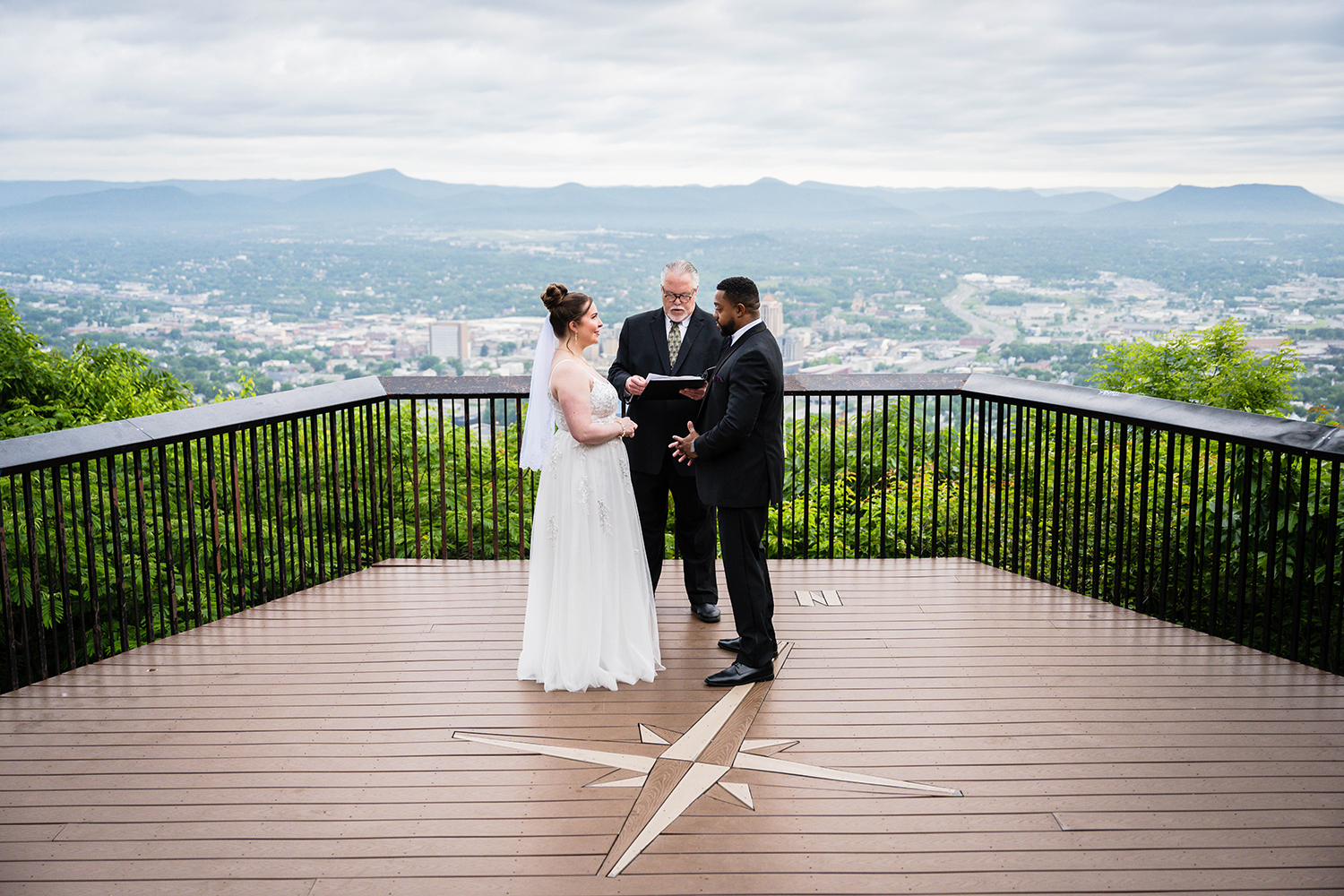
My Officiant Recommendations
I personally recommend Casey Anderson for your officiant needs; he’s friendly and professional, a fellow member of the Roanoke Wedding Network (a network of licensed and professional wedding vendors based in the Roanoke area), an LGBTQ+ friendly officiant, and is happy to design whatever ceremony you wish whether secular, religious, non-denominational, interfaith, cultural, or civil. My husband and I actually hired him to officiate our own elopement in 2023!
I’d also highly recommend Vanessa Waters of Vows by Vanessa! Vanessa has over 16 years of experience with officiating weddings in New York, Florida, and Virginia. She specializes in crafted ceremonies offered in religious, civil, non-denominational, and interfaith options. She is also an LGBTQ+ friendly officiant. Vanessa is happy to provide officiating services in-person or she can meet with you to handle the legal paperwork before or after your elopement day via a tabletop service. You can book her via email at Vo***********@***il.com or by giving her a call at (434) 477-4604.
Need other options for local officiants? Try Kirk Ballin of the Unitarian Universalist Church or Tony Hash of Get Me To I Do; both of these officiants will also perform ceremonies and provide services to the LGBTQ+ community. I’m unaware at this time if they provide license signing or tabletop services, but it doesn’t hurt to ask and, if you’re really looking to go that route, see if they have any other recommendations!
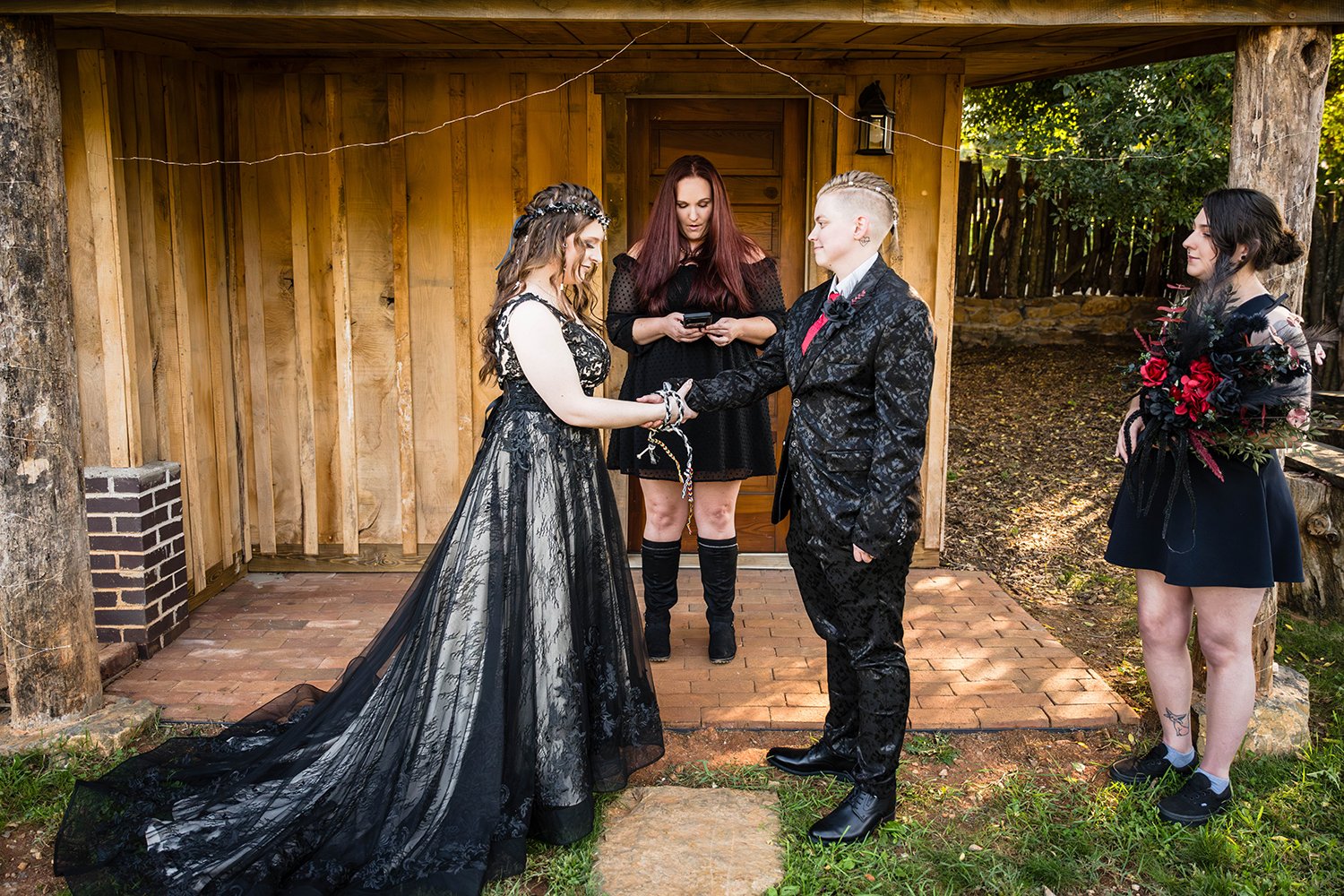
Need more resources on how to find LGBTQ+ friendly vendors? You’ll want to check out these blogs: What to Look for When Searching for LGBTQ+ Inclusive Wedding Vendors, How to Find an LGBTQ+ Friendly Officiant for Your Elopement, and Inclusive Vendors and Wedding Venues in Virginia.
If this blog inspired you to eff the big wedding and traditions and to be selfish and have an intimate elopement in Virginia instead, I’d love to be your elopement photographer and help you plan and capture your special day! Here are a few more resources to help you get started: Where, When, and How to Plan Your Virginia Elopement and The Best Places to Elope in Virginia: Southwest Edition.
Let’s do this thing! Fill out an inquiry form to get started or check out my pricing to learn more about my philosophy, practice, and packages.
Disclaimer: While this blog aims to provide helpful information on the process of legally getting married in Virginia, I am not a licensed legal professional. The information presented here is based on general knowledge and research available up to my last update in July 2025. Marriage laws and requirements can change, and they may vary by locality within Virginia. Therefore, it is crucial that you carefully review the specific instructions provided by your local Clerk of the Circuit Court’s office or seek legal advice if needed to ensure your marriage plans comply with current regulations.
